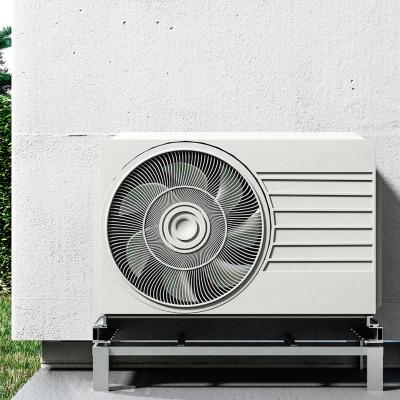Decoding the Numbers: How Much is Solar Installation?

Solar panel installation is becoming more and more popular among homes as they seek for alternative energy sources. The most frequent question, "How much is solar installation?", lies beneath the allure of being environmentally friendly. We'll explore the several aspects that affect solar panel installation costs in this in-depth guide, assisting you in crunching the numbers and choosing wisely for this environmentally friendly purchase in 2024
1. System Size and Energy Needs
A major determinant of the final cost of your solar panel system is its size. The size of the system required is determined by your energy needs, which are expressed in kilowatt-hours (kWh). Although a larger system has a higher initial cost, it produces more electricity. A household system usually has between 5 and 10 kW of power, and the cost per watt can range from $2.50 to $3.50 on average.
2. Quality and Type of Solar Panels
The efficiency and cost of solar panels are affected by the various quality and varieties that are available. Although they often cost more, high-efficiency solar panels can produce more electricity in a less amount of area. Solar panels typically cost one watt at a time between $0.75 and $1.50. The brand and wattage you select will affect the overall cost of the panels.
3. Inverter Technology
Depending on the type and technology, inverters—which are essential for converting DC to AC—have varying costs. Even while they improve performance, microinverters and power optimizers can raise your total costs by an extra $0.15 to $0.25 per watt. An investment that guarantees the effectiveness of your solar system is a high-quality inverter.
4. Installation Complexity
A major factor in the total cost is the intricacy of the installation procedure. A few examples of factors that may affect the installation difficulty are roof type, pitch, and shading. To handle such complexity, more manpower and equipment might be needed, which would raise the installation's total cost. The typical cost per watt for installation is between $2.50 and $4.50.
5. Location and Sunlight Exposure
The efficiency of solar panels is greatly influenced by their geographic location. Houses in areas with lots of sunshine are better suited for producing solar energy with efficiency. The quantity of sunshine your home receives affects the required system size and, in turn, the total cost.
6. Government Rebates and Incentives
The cost of solar installation can be considerably reduced by taking advantage of government rebates and incentives. To promote the use of solar power, federal, state, and local initiatives may provide cash rewards, tax credits, or rebates. These discounts have the potential to reduce the installation's overall cost, making it more affordable for homeowners.
7. Financing solutions
To increase the accessibility of solar installation, a number of financing solutions are available. To spread the expense over time, a lot of homeowners choose solar leases, loans, or power purchase agreements (PPAs). The total cost can be affected by the financing plan you select, so it's important to look at possibilities that fit your budget.
8. Maintenance and Warranty
Although solar panels require little upkeep, the caliber and duration of warranties might affect the final cost. Longer warranties are frequently associated with high-quality panels, offering comfort and possibly reducing future maintenance or replacement expenses.
9. Vendor and Installation Contractor
It is very important to choose a reliable vendor and installation contractor. Although high-quality service is more expensive, it guarantees a dependable system and an easy installation process. To find the sweet spot between price and quality, investigate suppliers, check customer testimonials, and get several bids.
10. Long-run Savings
It's critical to consider solar installation costs over the long run. Despite the very large initial outlay, there may be a positive return on investment (ROI) over time due to energy bill reductions and possible incentives. When assessing the initial outlay, take the long-term financial advantages into account.
Investing in Sustainability
Understanding a variety of aspects in detail is necessary to determine the cost of solar installation. You may have a better understanding of the dynamics of solar panel installation costs by breaking down these components and providing numerical values. Recall that purchasing solar represents a commitment to sustainability, energy independence, and a more environmentally friendly future rather than just a financial choice. Make a decision that matches your budget and environmental principles as you set out on this journey by weighing the short- and long-term rewards, visualizing the advantages for your home and the environment, and planning ahead.


